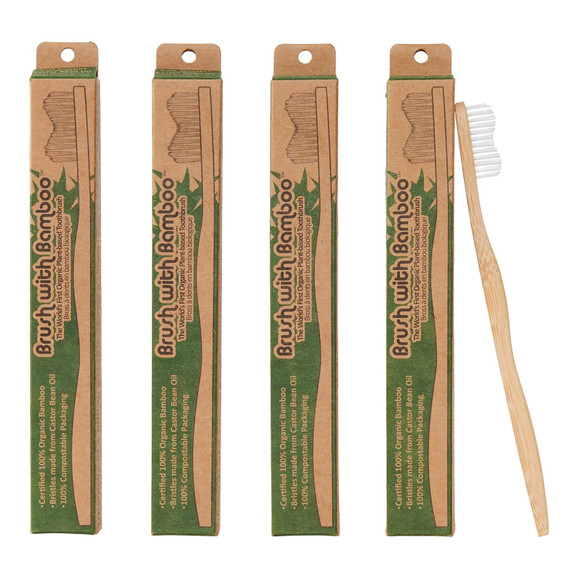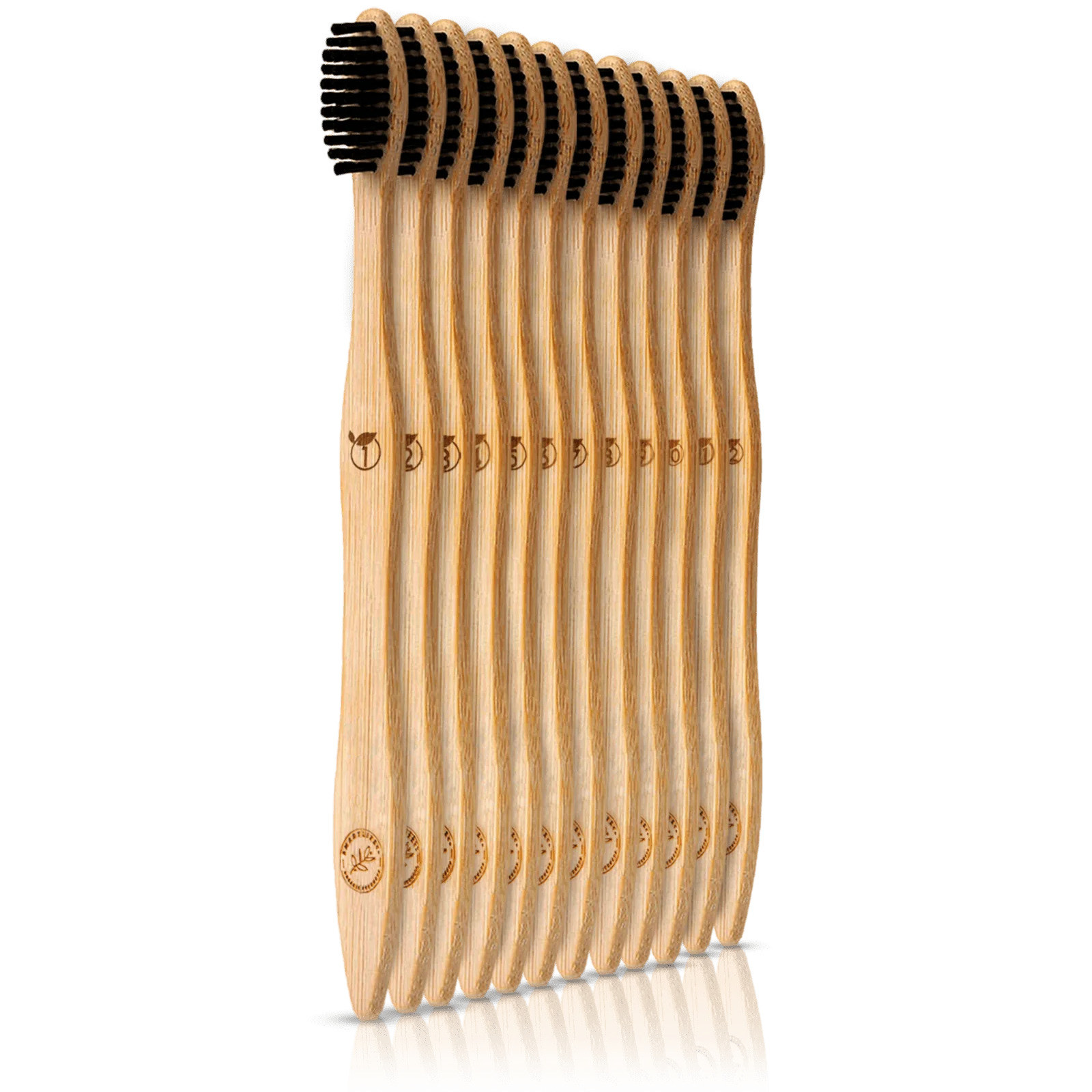
Embracing Tradition: The Bamboo Toothbrush Revolution
3rd Jan 2024
In a world where innovation is celebrated, it's fascinating to explore how the simplest things in life can make a significant impact. The humble toothbrush, an everyday essential, has undergone a revolution in recent times with the emergence of bamboo toothbrushes. In this blog, we'll delve into the rich history of bamboo toothbrushes, uncovering their origins and shedding light on the numerous benefits they bring to our oral health and the environment.

The Origins of Bamboo Toothbrushes:
Bamboo toothbrushes may seem like a modern eco-friendly alternative, but their roots can be traced back to ancient times. The earliest tooth-cleaning tools date as far back as 3000 BC in ancient Egypt, where twigs were used to clean teeth. However, it wasn't until more recent times that the idea of a bamboo toothbrush began to take shape.
The concept of a bamboo toothbrush gained momentum in the late 20th century, driven by the increasing awareness of environmental issues and the need for sustainable alternatives. Bamboo, known for its rapid growth and renewability, became a natural choice for crafting toothbrush handles.
Benefits of Bamboo Toothbrushes:
Environmental Impact:
- One of the most significant advantages of bamboo toothbrushes is their positive impact on the environment. Unlike traditional plastic toothbrushes, bamboo toothbrushes are biodegradable and compostable. This means they won't contribute to the ever-growing plastic pollution problem, taking us a step closer to a greener planet.
Renewable Resource:
- Bamboo is an incredibly fast-growing plant, making it a highly sustainable resource. Unlike other materials, bamboo can be harvested without killing the plant, and it reaches maturity in just a few years. This rapid growth ensures a steady supply of bamboo for the production of toothbrushes without depleting natural resources.
Reduced Carbon Footprint:
- Bamboo toothbrushes have a significantly lower carbon footprint compared to their plastic counterparts. The cultivation and processing of bamboo require less energy and resources, contributing to a more environmentally friendly production process.
Natural Antibacterial Properties:
- Bamboo possesses natural antibacterial and antimicrobial properties, which can help inhibit the growth of harmful bacteria on the toothbrush. This can contribute to better oral hygiene by keeping the brush cleaner between uses.
Aesthetically Pleasing:
- Bamboo toothbrushes not only offer environmental benefits but also stand out in terms of aesthetics. The natural texture and grain of bamboo provide a visually appealing alternative to the sterile appearance of traditional plastic toothbrushes.
Conclusion:
As we reflect on the journey of toothbrush evolution, it's clear that the bamboo toothbrush is more than just a fad; it's a conscious choice towards a sustainable future. By embracing these eco-friendly alternatives, we not only contribute to a cleaner planet but also promote a shift towards responsible consumption. So, the next time you reach for a toothbrush, consider making the switch to bamboo – a small change that can make a big difference.


